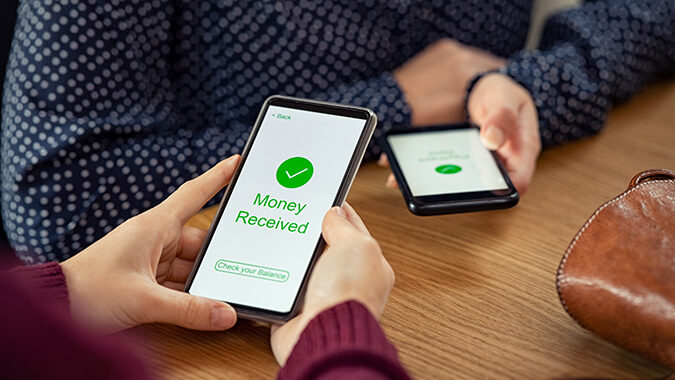Be cautious about sending or receiving money from friends and family on third-payment apps, especially if you are a small business owner or gig economy worker, because these nonbusiness-related payments could trigger a 1099-K form and a big IRS headache.
That’s the advice from the Taxpayer Advocate Service, an independent organization within the IRS, which notes that third-party apps, such as PayPal, Venmo and others, are required to issue a 1099-K when transactions exceed a certain annual threshold. Problems occur when friends or relatives use a third-party payment app to reimburse you for meals, shopping trips and nights out, but those payments are mistakenly marked as business transactions for goods or services and reported to the IRS.
The annual reporting threshold was supposed to drop to $600 in 2023 under a provision of the American Rescue Act, but in response to the public confusion about the change, the IRS recently issued Notice 2023-10 which delays implementation of the lower threshold until Jan. 1, 2024. This means that for now the old calendar-year threshold of $20,000 and 200 plus transactions remains in effect for 2023.
Although the delay in implementing the $600 threshold gives taxpayers a reprieve, it is still important to be cautious and keep careful records when using third-party payment apps to send and receive money, the Taxpayer Advocate Service (TAS) points out.
“Make sure payments to you or others are properly classified as an amount paid for something other than goods or services where possible," TAS said. “On sites like PayPal and Venmo, a payment can be designated whether it is to family and friends or a business transaction for goods and services. This designation will determine if the transaction(s) result in the issuance of a Form 1099-K.”
The law is clear that money received as a gift or reimbursement for the cost of meal should not be reported on a 1099-K. But mistakes may happen. Taxpayers who find themselves in this situation should contact the payment app company to request that a correction be electronically sent to the IRS. However, be prepared that this could be time-consuming and delay the processing of your tax return.
“If you want to minimize the chance of an error, be sure to ask those friends or family members to correctly designate the payment as a non-business-related transaction and then make a note yourself of what the payment was for and from whom it was received,” TAS said.




